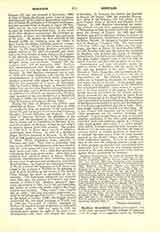

Boniface Association (BONIFATIUSVEREIN), one of the most successful Catholic societies of Germany, owes its origin to a suggestion made by Dellinger at the Third Catholic Congress of Germany, held at Ratisbon in 1849. The object of the association is to maintain what the Catholic Church possesses in those regions where Catholics are few in number, to found and support missions and schools, and to erect churches, parish-houses, and schools for Catholics in the Protestant parts of Germany. The territories which the association takes under its especial care are: the Diocese of Kulm; the Delegature of Brandenburg and Pomerania, belonging to the Prince-Bishopric of Breslau; the Vicariate Apostolic of Saxony; the Dioceses of Paderborn, Hildesheim, Osnabruck, and Fulda; the Northern Missions, etc. The association is managed by a general committee at Paderborn; the diocesan committees have entire control of the contributions they receive; after consultation with their respective diocesan councils, and under the approval of the general committee, the diocesan committees designate the objects to which the money shall be given. Since the association was founded about $9,250,000 has been collected and some 2,600 churches have been erected or aided.
Besides the diocesan committees another important branch is formed by the Boniface collecting societies. The first of these was founded in 1885 among the merchants of Paderborn by the Marian congregation; the aim of this branch of the association is, by the founding of orphan asylums and institutions where children are prepared for their first communion, to care for the religious training of Catholic children in non-Catholic communities. The funds are obtained by the collection and sale of objects of little value in themselves, such as, tin-foil, old postage stamps, clothing, leaden seals, old coins, books, cigar bands, cigar tips, and such trifles. More than $625,-000 has been raised by this branch association since its foundation; it aids more than 120 institutions for first communicants and orphan asylums, besides contributing considerable sums to children in non-Catholic communities for railway tickets, school and living expenses.
Another branch is the Academic Boniface Association which has existed for forty years at the German universities, the first one of these societies being founded at Munster in 1867. In 1888 the various university branches met at Freiburg and united into a common organization; in 1907 they included thirty-six branches with a membership of 750. Their organ is the “Akademische Bonifatius-Korrespondenz”. Since 1860 the general association has had a printing office and since 1888 a bookstore for old and new publications, both at Paderborn. The popes have granted indulgences and privileges to priests connected with the association. The association issues the “Bonifatiusblatt”, founded in 1850; the “Schlesisches Bonifatiusblatt”, 1860; and the “St. Bonifatiusblatt” at Prague, founded in 1904.
JOSEPH LINS

